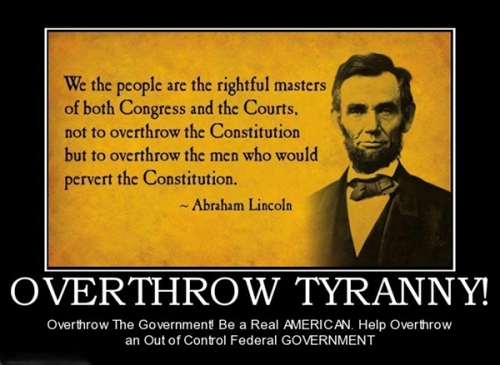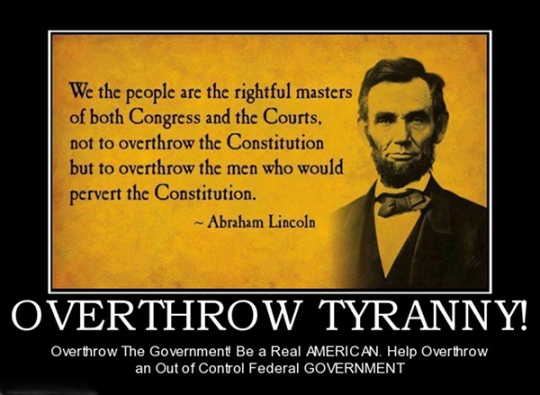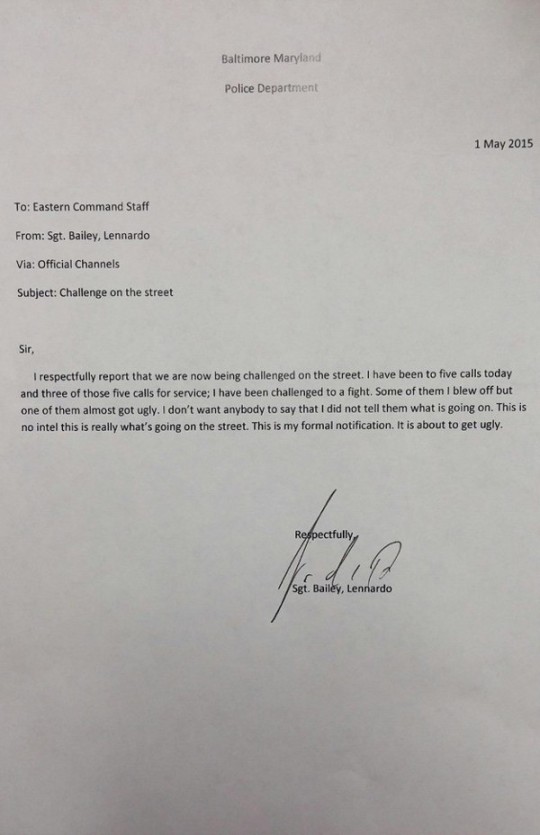 Judges abuse their power daily and the use of civil contempt is one of their greatest weapons. This is not simply because this action is powerful in its own right, but because people do not know how to defend themselves against its limits. If you do not speak up and demand your rights, you lose them. Most people don’t know their rights and most lawyers will not “fight” what the judge wants. This is our legal system today, especially in the kangaroo family courts.
Judges abuse their power daily and the use of civil contempt is one of their greatest weapons. This is not simply because this action is powerful in its own right, but because people do not know how to defend themselves against its limits. If you do not speak up and demand your rights, you lose them. Most people don’t know their rights and most lawyers will not “fight” what the judge wants. This is our legal system today, especially in the kangaroo family courts.
Civil contempt in law today is authorized to compel someone to obey a court order in present tense whether in direct view of the court or indirect view of the court. The difference in regard to child support is the remedy of incarceration. This is intended to compel compliance to the court order, however only if you have the ability to comply and are not doing so. You may be held until you no longer have the ability to pay . When that happens, it is grounds for immediate release. In a civil contempt per the view of U.S. law, the punishment is viewed as a remedy, and for the benefit of the complainant, which can be and often is the court. In the event of criminal contempt, the sentence is punitive, to vindicate the authority of the court. A contempt proceeding is considered to be criminal in nature, with possible penalties that include a jail sentence. Fear is the tool.
Civil contempt is for something that is current that you may purge yourself of, while criminal contempt is seen as a past wrong you have committed. Under the civil contempt you must be provided with the option to purge yourself of the contumacious act. With regard to child support enforcement, most states have built into the statutes that civil contempt and incarceration is a specific remedy for violation of the court’s order. This is not for the civil debt, but for specifically for the act of “willfully disobeying an order of the court while having the capacity to comply.” Even when the order is unjust, you must comply unless a stay of enforcement is granted, while you are challenging the “unjust” order. (Child Support: A Case Against Arrest)
Proof of Contempt
While the court’s power to punish through contempt is broad, contempt is meant to be exercised rarely and is presumed not to exist in many states, such as Texas. Three elements must be satisfied to prove contempt:
1) a reasonably specific order,
2) a violation of the order, and
3) the willful intent to violate the order.
To be specific enough to support a constructive contempt finding, an order must spell out the details of compliance in clear, unambiguous terms so that a person knows exactly what she must do to comply with it. Some courts have held that an oral order is never sufficiently specific; thus, only a written court order may support a constructive contempt finding. An oral order may support a direct contempt finding, but it must still be clear what the court has ordered the person to do. Finally, the person must be able to comply with the order.
Noncompliance with an unambiguous order of which a person has notice raises the inference that the violation was willful. But a person is in contempt only if he has the ability to comply with the court’s order but chooses not to. A person may not, for example, be jailed for failing to turn over property not in his possession. But for this exception to apply, the inability to comply must be involuntary. If a person puts himself in a position where he is unable to comply with the order, then he may still be held in contempt. Disability and mental capacity can impact the ability to comply.
During the past twenty years, both state and federal courts have examined the issue of whether parents who are seriously delinquent on their child support payments may be jailed for their failure to support their children. Nearly half of the state supreme courts and at least ten of the 11 federal circuit courts of appeals have heard cases concerning criminal penalties for failure to pay child support. As legislators and other policymakers debate the value and appropriateness of criminal sanctions for nonsupport, a review of the court holdings from state supreme courts and high level federal courts offers a legal perspective to the policy discussions in this area. Below, we examine some of the most commonly asked questions and how the courts have answered them.
Q. Why are states and the federal government using criminal penalties for delinquent child support obligors?
A. State and federal laws aimed at criminally penalizing parents for not paying child support are gaining backing for several policy reasons. First, child support experts and state policymakers are detecting fundamental differences among parents who are delinquent in child support – dividing them into “can’t pay” and “won’t pay” parents. While millions of dollars nationwide are being invested into programs to help the very low-income “can’t pay” parents, states are developing more aggressive enforcement tools to pursue the “won’t pay” parents who simply refuse to acknowledge their child support obligation, despite having the financial resources to do so. The increasingly common use of criminal statutes and court contempt orders in child support cases reflects society’s growing frustration with “won’t pay” parents. A recent opinion by the U.S. Ninth Circuit Court of Appeals aptly captured the prevailing judicial sentiment toward parents who evade child support obligations:
“It is just as much a violation of the CSRA [Child Support Recovery Act] for a non-custodial parent to fail to pay child support where his refusal to work is motivated by sloth, a change of lifestyles or pursuit of new career objectives. For most people, bringing children into the world does limit life choices by imposing certain long-term financial obligations.” [U.S. v. Ballek, 1999 WL 125955 (9th Cir. (Alaska), Mar. 11, 1999) (NO. 97-30326)].
State and federal prosecutors are selectively using their state criminal nonsupport laws to target parents who purposely hide assets, avoid employment or otherwise contrive to shirk their child support responsibilities. Some states, such as Kentucky, Ohio and Virginia, have conducted high profile trials and “sting” operations to locate and prosecute parents with large child support debts – in some cases several hundreds of thousands of dollars. Federal prosecutions are also becoming more common as federal officials crack down on wealthy child support obligors in interstate cases. The Inspector General’s Office and the Office of Child Support Enforcement of the U.S. Department of Health and Human Services, along with the U.S. Department of Justice, created Project Save Our Children (PSOC), “to create a nationwide comprehensive and coordinated health and human services and criminal justice response to unresolved child support enforcement cases.” PSOC investigates and prosecutes high-profile criminal nonsupport cases with interstate circumstances, typically under the Child Support Recovery Act of 1992. By focusing on high-profile cases, PSOC hopes to deliver a strong public message to delinquent obligors who consistently avoid paying child support. Most of the parents arrested and prosecuted by PSOC are wealthy individuals with substantial assets.
Q. Isn’t child support a matter of civil, not criminal, law?
A. Laws concerning child support guidelines and most child support enforcement mechanisms are civil in nature, but failure to pay child support may subject a parent to criminal sanctions in three situations: 1.) prosecution under a state criminal “failure to provide support” statute, 2.) prosecution under the federal Child Support Recovery Act of 1992 (CSRA), or 3.) a finding of contempt of court for failure to obey the court’s child support order.
All states have criminal laws setting felony or misdemeanor penalties for failure to support a child or family. Most of these laws were not specifically written with child support in mind, but were originally intended for parents who abandoned or neglected their children. Classifications of these statutes range from “desertion and nonsupport” (Michigan) to “nonsupport of a child or spouse” (Kansas) to “failure to meet an obligation to provide support to a minor”(West Virginia). Likewise, maximum penalties under these laws vary greatly, from 14 years in prison for a felony conviction in Idaho to six months in prison for a misdemeanor in Rhode Island.
Parents who willfully avoid child support payments for a child in another state and owe the greater of a year’s worth of child support or $5,000 may be prosecuted under the federal Child Support Recovery Act of 1992. When the statute originally was written, the crime was classified as a misdemeanor, and delinquent parents risked a maximum jail term of six months. With the passage of the Deadbeat Parents Punishment Act of 1998, this federal crime was upgraded to a felony and now carries a maximum prison sentence of two years for parents who owe at least $10,000, or are at least two years behind in their child support obligation and possess two contempt citations for failure to obey their child support order. The original offense also was expanded to include delinquent parents who cross state lines to evade child support responsibilities, in addition to those living in different states from the children.
Because child support orders are official court orders – with the same weight as orders such as subpoenas to appear in court – a parent disobeying the terms of the child support order risks a finding of contempt of court. Based on this, a contempt of court order is probably the most common avenue for a delinquent child support obligor to find himself or herself behind bars.
Q. Is contempt of court a civil or criminal violation?
A. Contempt of court orders can be either criminal or civil in nature, and criminal and civil contempt proceedings differ in several regards. Although most states have many laws concerning contempt of court powers, courts do not need explicit statutory authorization for issuing a civil contempt of court order and subsequent penalty for violation of a child support order; this contempt power is typically inherent in the court’s basic authorization to enforce its orders. Civil contempt of court may be punishable by jail time, restitution, or fines. Under a civil contempt order, the person guilty of contempt of court “holds the jailhouse keys” in that he can cure the contempt and gain release from jail by abiding by the order, e.g. by paying the overdue child support. In a civil contempt of court proceeding, the violation of the order must be proven by clear and convincing evidence and the burden of proof may be shifted to the defendant in some circumstances.
Despite carrying a criminal penalty of incarceration, civil contempt of court orders are not classified as criminal actions; criminal contempt is a different matter in several respects. Unlike in a civil contempt situation, under a criminal contempt order, the contemnor does not “hold the keys to the jailhouse door” — he or she cannot shorten the imprisonment period simply by paying the fine or complying with the order. Criminal contempt, rather, is a form of punishment; a penalty imposed and required to be served to its completion. Because of the punitive nature of these orders, they generally are accompanied by many of the same due process requirements as a criminal trial (e.g. right to notice, right to counsel, right to a jury trial, etc.), and criminal contempt powers must be statutorily authorized by the legislature. Finally, in criminal contempt hearings, the government bears the burden of proving the guilt of the defendant beyond a reasonable doubt.
Courts differ in their characterization of contempt orders for failure to pay child support. The lines between civil and criminal contempt are often blurred in failure to pay child support cases, particularly if the court does not explicitly clarify the charge facing the delinquent parent. Michigan’s supreme court decided that even though child support contempt proceedings were statutorily intended to be civil in nature, the proceedings become criminal if the defendant does not have the present ability to pay, and the defendant is then entitled to representation by an attorney [Mead v. Batchlor, 435 Mich. 480, 460 N.W.2d 493 (Mich. 1990)]. New Mexico’s state supreme court ruled that a jail sentence, which is typically considered a criminal punishment, could be imposed in a civil contempt proceeding for failure to pay child support [Niemyjski v. Niemyjski, 98 N.M. 176, 646 P.2d 1240 (N.M. 1982)]. The Supreme Court of Tennessee, however, held that child support contempt was a criminal offense with a criminal penalty; therefore, the obligor could not be incarcerated without a jury trial and a conviction [Brown v. Latham, Walker v. Walker, 914 S.W.2d 887 (Tenn. 1996)].
The issue is further muddled by court decisions that not all child support contempt proceedings classified as criminal are entitled to a jury trial [see International Union, United Mine Workers of America v. Bagwell, 512 U.S. 821 (1994) [jury trial not constitutionally required for criminal contempt proceedings]]. For example, in a criminal prosecution under the CSRA, the U.S. Ninth Circuit Court of Appeals decided that a jury trial was not necessary because the restitution penalty was not so severe as to convert the petty offense – a misdemeanor – into a serious one deserving of a jury trial [U.S. v. Ballek, 1999 WL 125955 (9th Cir. (Alaska), Mar. 11, 1999)(NO. 97-30326)].
State supreme court cases suggest that additional limits on the use of the contempt power in the child support context exist. At least one state supreme court has decided that if the delinquent parent proves he is financially unable to “cure” the contempt, the court may not continue the incarceration [Hughes v. Dept. of Human Resources, 269 GA. 587, 502 S.E.2d 233 (Ga. 1998)]. The California supreme court adopted a more narrow reading of this concept, holding that a delinquent parent’s incarceration may continue “when the parent’s financial inability to comply with the order is the result of the parent’s willful failure to seek and accept available employment that is commensurate with his or her skills and abilities” [Moss v. Superior Court, 17 Cal.4th 396, 950 P.2d 59 (Cal. 1998)]. Finally, the Supreme Court of Texas ruled that the contempt order must consist of a written judgment of contempt or written order of commitment before a parent may be incarcerated [Ex parte Strickland, 723 S.W.2d 668 (Tex. 1987)].
The only U.S. Supreme Court case to examine the issue of contempt for failure to pay child support pivoted on this very question of whether the contempt was criminal or civil in nature [Hicks v. Fieock, 485 U.S. 624 (1988)]. The Court held that the California statute in question, which had a legal presumption that the obligated parent was able to pay the required child support, was an unconstitutional violation of the Due Process Clause of the U.S. Constitution if the proceeding was a criminal contempt proceeding. The statute’s legal presumption reduced the burden of proof on the government and transferred that burden to the delinquent parent, which is not permissible in a criminal trial. On the other hand, the Court reasoned, if the statute were being applied in a civil proceeding, the transfer of the burden of proof would be constitutionally valid. Therefore, the Court remanded the case back to the lower court to determine whether the contempt proceedings were civil or criminal in nature. The Supreme Court also offered guidance to the lower court by more clearly delineating some of the characteristics distinguishing civil and criminal contempt orders and outlining examples of both.
Q. Does the child support obligor always have the right to an attorney during contempt proceedings?
A. State courts have reached conflicting conclusions regarding the question of the delinquent obligor’s right to counsel in child support contempt proceedings. Several state supreme courts, including Delaware, Michigan, North Dakota, Texas, and Vermont, have ruled that noncustodial parents facing incarceration for contempt of a child support order have the right to be represented by a lawyer during the contempt proceeding [Black v. Division of Child Support Enforcement, 686 A.2d 164 (Del. 1996)[civil contempt]; Mead v. Batchlor, 435 Mich. 480, 460 N.S.2d 493 (Mich. 1990) [civil contempt]; State v. Gruchalla, 467 N.W.2d 451 (N.D. 1991) [civil contempt]; Ex parte Gunther, 758 S.W.2d 226 (Tex. 1988) [unclear whether civil or criminal]; Choiniere v. Brooks, 163 Vt. 625, 660 A.2d 289 (Vt. 1995) [civil contempt]. The Delaware supreme court specifically found that “the presumption that an indigent defendant has the right to appointed counsel applies when, if he loses, he may be deprived of his personal liberty,” but did not apply if the state sought punishment of something less than incarceration.
Other state supreme courts, including Florida, Missouri, New Mexico and North Carolina, have decided that parents subject to child support civil contempt sanctions are not entitled to legal representation [Andrews v. Walton, 428 So.2d 663 (Fla. 1983); State ex rel. Sterling, 719 S.W.2d 455 (Mo. 1986); State ex rel. Dept. of Human Services v. Rael, 97 N.M. 640, 642 P.2d 1099 (N.M. 1982); Jolly v. Wright, 300 N.C. 83, 265 S.E.2d 135 (N.C. 1980)]. The Florida Supreme Court found that in a situation where the father had the ability to pay the child support but willfully refused to do so, and thus was not indigent, the father’s due process rights were not violated when the trial court ordered incarceration without appointing counsel for him in the civil contempt proceeding.
Even indigent obligors are not necessarily entitled to a lawyer. The North Carolina court ruled that “since the nature of nonsupport civil contempt cases usually is not complex, due process does not require that counsel be automatically appointed for indigents in such cases” and that counsel would only need to be appointed in cases where it was “necessary for an adequate presentation of the merits [of the case], or to otherwise ensure fundamental fairness” [Jolly v. Wright, 300 N.C. 83, 265 S.E.2d 135 (N.C. 1980)].
Proving indigency in order to obtain court-appointed counsel can place the delinquent parent in a potentially self-incriminating position if the he or she is not found to be indigent. If the court rules that the parent is not indigent, that ruling could lend credibility to a charge that the parent had the resources to pay the child support and chose not to. Recognizing this, the Supreme Court of North Dakota required that a father found in contempt for failure to pay child support should have had the opportunity to prove his indigence for purposes of appointment of counsel in private meetings with the judge and lawyers, rather than in open court, since the disclosure of facts relative to proof of his indigence could have been used against him in the contempt proceedings [State v. Gruchalla, 467 N.W.2d 451 (N.D. 1991)].
Even if the defendant is entitled to counsel, he may not be entitled to have the state pay for it. Missouri’s Supreme Court held that the trial court in a civil child support contempt proceeding “could not compel the state to expend public funds by appointment of a public defender to represent the alleged indigent father” [State ex rel. Sterling v. Long, 719 S.W.2d 455 (Mo. 1986)]. Similarly, the Delaware supreme court ruled that the Office of the Public Defender could not be appointed to represent an indigent defendant in criminal contempt proceedings arising out of child support orders [Black v. Division of Child Support Enforcement, 686 A.2d 164 (Del. 1996)].
Q. What if the child support obligor claims that he or she doesn’t have the resources to pay the required child support?
A. Many parents delinquent in their child support payments and subject to contempt citations claim that they are unable to financially meet their support obligations. At least three state supreme courts – California, Oregon, and Texas – have ruled that it is the obligor’s responsibility to raise an inability to pay as a defense, and to prove that inability by a preponderance of the evidence [Moss v. Superior Court, 17 Cal.4th 396, 950 P.2d 59 (Cal. 1998); State ex rel. Mikkelsen v. Hill, 315 Or. 452, 847 P.2d 402 (Or. 1993); Ex parte Roosth, 881 S.W.2d 300 (Tex. 1994)]. It is not, according to the courts, the responsibility of the custodial parent or the state to prove that the noncustodial parent has the financial resources to meet his or her child support obligation. The U.S. Supreme Court, in Fieock, also found that allocating the burden of proof in this manner was constitutional and reasonable in child support contempt proceedings.
Whether or not a parent has the financial ability to comply with the child support order is particularly important in prosecutions under the CSRA, which requires that the parent’s failure to pay support must be “willful” in order to warrant a conviction. In other words, in order to obtain a conviction under this federal law, the government must prove that the parent has the resources to comply and simply chose not to do so. See U.S. v. Mathes, 151 F.3d 251 (5th Cir. 1998); U.S. v. Brand, 163 F.3d 1268 (11th Cir. 1998). The Ballek court examined the CRSA and Congressional legislative history in order to clarify the willfullness requirement and determined that “a noncustodial parent who does not have the funds to satisfy the child support award, and who does not obtain a reduction or remission of the award because of inability to pay, will almost certainly be engaged in willful defiance of the state court’s child support order” [U.S. v. Ballek, 1999 WL 125955, 1999 Daily Journal D.A.R. 2325 (9th Cir. (Alaska), Mar. 11, 1999)(NO. 97-30326)].
Noncustodial parents who truly lack the ability to meet their child support obligations have the right in every state to request a downward modification of their child support order based on a change in circumstances. Also, many states offer parents who cannot meet their obligations and have amassed arrearages the opportunity to negotiate a payment plan and avoid severe sanctions, such as prosecution, revocation of certain licenses, or liens on their property. With these alternatives available, many courts and state agencies are adopting a tougher stance against parents who ignore their child support obligations.
Q. Isn’t it unconstitutional for the court to order a person to work just to pay off a child support debt?
A. Some delinquent parents have argued that requiring an obligor to meet a court-ordered child support obligation, without consideration of his or her current employment status, is unconstitutional because it violates the U.S. Constitution’s prohibition on slavery and involuntary servitude or because it creates a criminal penalty for a civil debt. In a recent case, the California state supreme court examined this argument in detail and ruled that enforcement of a child support order did not run afoul of the Thirteenth Amendment’s slavery and involuntary servitude prohibition [Moss v. Superior Court, 17 Cal. 4th 396, 950 P.2d 59 (Cal. 1998)]. Specifically, the court found that “there is no constitutional impediment to imposition of contempt sanctions on a parent for violation of a judicial child support order when the parent’s financial inability to comply with the order is the result of the parent’s willful failure to seek and accept available employment that is commensurate with his or her skills and ability.” In reaching this conclusion, the court distinguished child support from other types of family support and narrowed 100 years of the state’s common law in this area. California’s highest court also reviewed U.S. Supreme Court and U.S. Circuit Court of Appeals cases, Congressional legislative history, the state constitution, and analogous areas of common law in order to reach its holding. Based on this review, the court determined that the crucial element in slavery or involuntary servitude is the requirement that the oppressed person be bound to one employer or one form of employment. Since child support orders do not require the obligor to work for a specific person or in a particular line of work, the court held that enforcement of such orders does not rise to the level or slavery or involuntary servitude. The court also noted that the U.S. Supreme Court has outlined exceptions for the performance of other civil duties, such as jury service, military service, road work, and enforced labor as punishment for a crime, such as work camps.
In March 1999, the Supreme Court for the State of Colorado likewise ruled against a father’s claim that a criminal contempt sanction for failure to pay child support violated the state constitution’s prohibition against imprisonment for debt [In re Marriage of Nussbeck, 1999 WL 112188 (Colo., Mar 01, 1999) (NO. 97SC540)]. In this case, the father argued that because his child support arrearage was converted automatically to a judgment against him under Colorado child support law, he was being imprisoned for a standing debt. The court rejected this argument, holding that the father may be imprisoned for failure to pay child support because the contempt order was predicated on his failure to comply with the order, not on the existence of a judgment against him. The fact that the arrearage converted to a judgment against him, the court stated, was immaterial to the contempt order for noncompliance.
At least one federal circuit court of appeals has also ruled that enforcement of a child support order is not akin to slavery [U.S. v. Ballek, 1999 WL 125955, 1999 Daily Journal D.A.R. 2325 (9th Cir. (Alaska), Mar. 11, 1999)(NO. 97-30326)]. The U.S. Ninth Circuit Court of Appeals cited three reasons for distinguishing child support enforcement from involuntary servitude and slavery: 1.) “the relationship between parent and child is much more than the ordinary relationship between debtor and creditor”; 2.) “the state’s strong concern for the welfare of minor children is…manifested by the fact that parental obligations at the dissolution of marriage are not left to private agreement”; and 3.) “the state has an interest in protecting the public [funds] by ensuring that the children not become wards of the state.” Furthermore, the court declined to “interpret the Thirteenth Amendment in a way that would so drastically interfere with one of the most important and sensitive exercises of the police power – ensuring that persons too young to take care of themselves can count on both their parents for material support.” This holding illustrates courts’ reluctance to create a constitutional loophole in child support enforcement.
Q. Did Congress have the constitutional authority to enact the Child Support Recovery Act of 1992?
A. Many parents with delinquent child support obligations have challenged Congressional authority to enact the CSRA in the first place, but none have been successful. At least ten of the 11 federal circuit courts of appeal have heard cases of this kind. The most common claim is that Congress exceeded its Constitutional authority when it enacted the CSRA, violating the Tenth Amendment of the U.S. Constitution in the process. All ten U.S. Circuit Courts of Appeal rejected this argument and further found that passage of the CSRA was a proper exercise of Congress’ broad authority under the Commerce Clause [U.S. v. Bongiorno, 106 F.3d 1027 (1st Cir. 1997); U.S. v. Sage, 92 F.3d 101 (2nd Cir. 1996); U.S. v. Parker, 108 F.3d 28 (3rd Cir. 1997); U.S. v. Johnson, 114 F.3d 476 (4th Cir. 1997); U.S. v. Bailey, 115 F.3d 1222 (5th Cir. 1997); U.S. v. Black, 125 F.3d 454 (7th Cir. 1997); U.S. v. Crawford, 115 F.3d 1397 (8th Cir. 1997); U.S. v. Mussari, 95 F.3d 787 (9th Cir. 1996); U.S. v. Hampshire, 95 F.3d 999 (10th Cir. 1996); U.S. v. Williams, 121 F.3d 615 (11th Cir. 1997)].
Q. Can parents be prosecuted under the Child Support Recovery Act for any arrearage that accrued before the federal law was enacted in 1992?
A. A few obligor parents have argued that prosecutions under the CSRA for child support arrearages that accrued prior to enactment of the federal law violate the U.S. Constitution’s protection that a person not be found criminally liable for an action that was not criminal when it was committed. These challenges to an ex post facto application of the CSRA have generated limited success in the courts. In at least five of the cases at the federal court of appeals level, the courts ruled that the prosecutions did not violate the ex post facto clause of the U.S. Constitution [U.S. v. Rose, 153 F.3d 208 (5th Cir. 1998); U.S. v. Black, 125 F.3d 454 (7th Cir. 1997); U.S. v. Crawford, 115 F.3d 1397 (8th Cir. 1997); U.S. v. Hampshire, 95 F.3d 999 (10th Cir. 1996); U.S. v. Muench, 153 F.3d 1298 (11th Cir. 1998)] Only the U.S. Ninth Circuit Court of Appeals agreed with the defendant that the retroactive application of the CSRA, which subjected the defendant to federal criminal penalties for failure to pay support without differentiating between delinquencies alleged to have occurred before and after the CSRA’s date of enactment, was an unconstitutional ex post facto enforcement of the CSRA [U.S. v. Mussari, 152 F.3d 1156 (9th Cir. 1998). Ex post facto challenges are examined in the context of the circumstances giving rise to the case; therefore, any of these courts, given different circumstances, could rule differently.
Notice: This article is not legal counsel. You will need an attorney and your own wits to supply you with the details of your case.

Can You Defend Yourself Against Civil Contempt & Non-Compliance? by E.J. Manning is licensed under a Creative Commons Attribution 3.0 Unported License.
Permissions beyond the scope of this license may be available at http://bradleyamendment.wordpress.com.
 Life is often full of “unintended consequences” – consequences that aren’t so unintended after all is said and done. Enter the “sad plight” of a lesbian couple that long for a child of their own, advertising for a sperm donor for “their child.” In this case, a lesbian couple places an ad on Craigslist, in a effort to fill a hole in their life.
Life is often full of “unintended consequences” – consequences that aren’t so unintended after all is said and done. Enter the “sad plight” of a lesbian couple that long for a child of their own, advertising for a sperm donor for “their child.” In this case, a lesbian couple places an ad on Craigslist, in a effort to fill a hole in their life. That is where people like William Marotta step in – where angels would fear to tread.
That is where people like William Marotta step in – where angels would fear to tread. Politicians have set the law up to enrich themselves under the pretense of morality and right. The state will place itself between the product of any relationship where it can benefit. In today’s insane age of legal pedantics, the state of Kansas claims the right to govern all human stock, despite a contract that gave all parental rights of the child to a lesbian couple. The lesbian couple have spoke up, making a vain attempt to fight the state for their rights, but the Department of Child Services won’t hear it. They told the lesbian protester that the matter was none of her business, and that she should go away – even when it involved her directly.
Politicians have set the law up to enrich themselves under the pretense of morality and right. The state will place itself between the product of any relationship where it can benefit. In today’s insane age of legal pedantics, the state of Kansas claims the right to govern all human stock, despite a contract that gave all parental rights of the child to a lesbian couple. The lesbian couple have spoke up, making a vain attempt to fight the state for their rights, but the Department of Child Services won’t hear it. They told the lesbian protester that the matter was none of her business, and that she should go away – even when it involved her directly.
 Why should anyone be subject to punishment merely for driving “x” speed? Is it not of a piece with punishing someone for merely consuming alcohol?
Why should anyone be subject to punishment merely for driving “x” speed? Is it not of a piece with punishing someone for merely consuming alcohol?
 Speed limits as such ought to be thrown in the woods. They are arbitrary, morally indefensible – and most of all, one-size-fits-all.
Speed limits as such ought to be thrown in the woods. They are arbitrary, morally indefensible – and most of all, one-size-fits-all. Speed advisories would be fine. For example a sign letting you know that there is a sharp curve ahead and maybe reducing speed would be good. Drivers unfamiliar with that road – and never having driven that curve before – may find this information helpful. But why should the local who is familiar with that road – and who drives that curve everyday – be subject to punishment for taking the curve at a higher speed?
Speed advisories would be fine. For example a sign letting you know that there is a sharp curve ahead and maybe reducing speed would be good. Drivers unfamiliar with that road – and never having driven that curve before – may find this information helpful. But why should the local who is familiar with that road – and who drives that curve everyday – be subject to punishment for taking the curve at a higher speed? A Canadian judge has called a Nova Scotia businessman and developer one of the “worst deadbeat” dads in Canadian history. The judge sentenced him to four years in prison, adding a court fine of $384,000. Gotta make sure the corporate court has a little extra owed to it. Eh?
A Canadian judge has called a Nova Scotia businessman and developer one of the “worst deadbeat” dads in Canadian history. The judge sentenced him to four years in prison, adding a court fine of $384,000. Gotta make sure the corporate court has a little extra owed to it. Eh? The National Post claimed that family court judge Theresa Forgeron (obviously an offended opportunistic feminist) said Vrege Armoyan’s “defiance spanned many years.” He owes a “shameful amount of arrears” racked up in a deliberate plan to hide money and to avoid paying support for his three children, ages 20, 18 and 15. (Shouldn’t two of those be emancipated?)
The National Post claimed that family court judge Theresa Forgeron (obviously an offended opportunistic feminist) said Vrege Armoyan’s “defiance spanned many years.” He owes a “shameful amount of arrears” racked up in a deliberate plan to hide money and to avoid paying support for his three children, ages 20, 18 and 15. (Shouldn’t two of those be emancipated?) As usual, the court debt is mostly imaginary. Armoyan was originally ordered to pay $29,000 a month in child support and alimony in 2012. He never paid the full amount. As a self-employed man of business, he is one of the few to claim that right. Instead, he opted to pay $9000 a month. The total arrears is $1,714,684.04, as well as owing over $1 million in court costs. I know who isn’t going to be in Canada – ever.
As usual, the court debt is mostly imaginary. Armoyan was originally ordered to pay $29,000 a month in child support and alimony in 2012. He never paid the full amount. As a self-employed man of business, he is one of the few to claim that right. Instead, he opted to pay $9000 a month. The total arrears is $1,714,684.04, as well as owing over $1 million in court costs. I know who isn’t going to be in Canada – ever. Naturally, a blood-sucking lawyer was quoted as being in full agreement with the court. Lawyers depend on the good favor of the court. They kiss the ring of a judge, a legalized mobster. Surprised? So why are you paying your lawyer so much to represent you? He must be good in bed, for someone anyway.
Naturally, a blood-sucking lawyer was quoted as being in full agreement with the court. Lawyers depend on the good favor of the court. They kiss the ring of a judge, a legalized mobster. Surprised? So why are you paying your lawyer so much to represent you? He must be good in bed, for someone anyway. The greed of the ex and the court is unrivaled, supported by the attorney of ex: “My client can’t afford groceries. She can’t afford to fly here for this hearing.” Perhaps she couldn’t afford the gas money to drive her limosine either. The bottom line? $9000 wasn’t enough for anyone. They pushed the issue and lost, putting themselves through some suffering.
The greed of the ex and the court is unrivaled, supported by the attorney of ex: “My client can’t afford groceries. She can’t afford to fly here for this hearing.” Perhaps she couldn’t afford the gas money to drive her limosine either. The bottom line? $9000 wasn’t enough for anyone. They pushed the issue and lost, putting themselves through some suffering. The judge declared that Armoyan was guilty of “contempt of court.” Neither he, nor his attorney showed at a hearing last Friday. Doubtless, the attorney wasn’t paid to show, yet, his defiance is declared by his absence (not the attorney, he’s still kissing the ring). He “strategically and tactically” avoided payment and fled the country to avoid the unbounded greed of his ex-wife and the courts. Good for him. It’s a freakin’ gravy train against men in this part of the world.
The judge declared that Armoyan was guilty of “contempt of court.” Neither he, nor his attorney showed at a hearing last Friday. Doubtless, the attorney wasn’t paid to show, yet, his defiance is declared by his absence (not the attorney, he’s still kissing the ring). He “strategically and tactically” avoided payment and fled the country to avoid the unbounded greed of his ex-wife and the courts. Good for him. It’s a freakin’ gravy train against men in this part of the world. Mayors and city councils—in office largely courtesy of public apathy—are President Barack Obama’s boots on the ground in the ongoing, carefully orchestrated racial riots coming soon to a city near you. In their bid to rescue America from total Marxist eclipse, patriots, as it turns out, have been knocking on the wrong door.
Mayors and city councils—in office largely courtesy of public apathy—are President Barack Obama’s boots on the ground in the ongoing, carefully orchestrated racial riots coming soon to a city near you. In their bid to rescue America from total Marxist eclipse, patriots, as it turns out, have been knocking on the wrong door. While diverting public attention by snubbing senators, and overriding both Constitution and Congress, Obama is now hammering the final nail in the Fundamental Transformation of America coffin.
While diverting public attention by snubbing senators, and overriding both Constitution and Congress, Obama is now hammering the final nail in the Fundamental Transformation of America coffin. ‘We the People’ should have seen Baltimore and Ferguson coming on July 2, 2008, when Obama boasted in Colorado Springs, CO: “We cannot continue to rely only on our military in order to achieve the national security objectives that we’ve set. We’ve got to have a civilian national security force that’s just as powerful, just as strong, just as well-funded.”
‘We the People’ should have seen Baltimore and Ferguson coming on July 2, 2008, when Obama boasted in Colorado Springs, CO: “We cannot continue to rely only on our military in order to achieve the national security objectives that we’ve set. We’ve got to have a civilian national security force that’s just as powerful, just as strong, just as well-funded.” First came the smear job spreading the fallacy that police deliberately profile only young blacks, and are addicted to the habit of randomly shooting them. Marxist propaganda leaves the disingenuous impression that racist rogue cops dominate most police forces.
First came the smear job spreading the fallacy that police deliberately profile only young blacks, and are addicted to the habit of randomly shooting them. Marxist propaganda leaves the disingenuous impression that racist rogue cops dominate most police forces. One hundred police officers were injured in the Baltimore riots. Businesses up and running only the day before were left in burnt-out rubble, facts carelessly written off by Obama.
One hundred police officers were injured in the Baltimore riots. Businesses up and running only the day before were left in burnt-out rubble, facts carelessly written off by Obama. Obama counts on the same kind of apathy that dogs municipal elections about racial riots that are being staged, right down to including outside protesters being rushed in to the scene of the riots.
Obama counts on the same kind of apathy that dogs municipal elections about racial riots that are being staged, right down to including outside protesters being rushed in to the scene of the riots. By throwing gasoline on the racial discord gathering steam in American cities, is Obama sending a message to America’s foreign enemies that the U.S. is now at its most vulnerable for a strike?
By throwing gasoline on the racial discord gathering steam in American cities, is Obama sending a message to America’s foreign enemies that the U.S. is now at its most vulnerable for a strike?

 If you are a non-custodial parent, you’ve probably heard it before. When you find yourself behind in child support you are automatically labeled a deadbeat by certain authorities and those with an axe to grind. After all, they are ‘entitled’ to your cash any way they can get it.
If you are a non-custodial parent, you’ve probably heard it before. When you find yourself behind in child support you are automatically labeled a deadbeat by certain authorities and those with an axe to grind. After all, they are ‘entitled’ to your cash any way they can get it. “I am 100 percent supporting this. These guys have been doing everything they can to collect this money. We have tried for years to get these people to pay, and I believe that the efforts between the cost collections team and the constant pressure the group is applying to the deadbeats who refuse to pay is something we need in this county.”
“I am 100 percent supporting this. These guys have been doing everything they can to collect this money. We have tried for years to get these people to pay, and I believe that the efforts between the cost collections team and the constant pressure the group is applying to the deadbeats who refuse to pay is something we need in this county.” Just remember, regardless of what Vinny and others in ‘public service’ say, taxpayer money is being used to fund the venture for a measure that is Constitutionally illegal. Due process has been vacated. No matter. Child support law is unconstitutional, but Federal family law statute has overcome that. Officials believe it is their God-given right to oppress those that owe them – publicly, and at your expense. This is also at the expense of your grandchildren as well, since the nation is running a budget deficit. That’s just good business. Right?
Just remember, regardless of what Vinny and others in ‘public service’ say, taxpayer money is being used to fund the venture for a measure that is Constitutionally illegal. Due process has been vacated. No matter. Child support law is unconstitutional, but Federal family law statute has overcome that. Officials believe it is their God-given right to oppress those that owe them – publicly, and at your expense. This is also at the expense of your grandchildren as well, since the nation is running a budget deficit. That’s just good business. Right? A growing number of Americans are frustrated with the way in which their economy has been managed and are becoming increasingly concerned about future measures the government may take to keep its coffers full.
A growing number of Americans are frustrated with the way in which their economy has been managed and are becoming increasingly concerned about future measures the government may take to keep its coffers full. With a few exceptions, the IRC imposes taxes on both U.S. source income and foreign source income of U.S. citizens. Non-resident, non-U.S. citizens (also known as “non-resident aliens”) pay tax only on U.S. source income, although some U.S. sources of income (e.g., most capital gains) are tax-free.
With a few exceptions, the IRC imposes taxes on both U.S. source income and foreign source income of U.S. citizens. Non-resident, non-U.S. citizens (also known as “non-resident aliens”) pay tax only on U.S. source income, although some U.S. sources of income (e.g., most capital gains) are tax-free. Once you give up U.S. citizenship and passport, you no longer have the right to live in the United States. You may generally make brief visits, but in most cases, you won’t be able to stay more than approximately four months annually without becoming subject to U.S. tax on your worldwide income based on the IRC’s “deemed residence” rules discussed in Part II of this report. Finding another country to live in is therefore an essential part of any expatriation exit strategy.
Once you give up U.S. citizenship and passport, you no longer have the right to live in the United States. You may generally make brief visits, but in most cases, you won’t be able to stay more than approximately four months annually without becoming subject to U.S. tax on your worldwide income based on the IRC’s “deemed residence” rules discussed in Part II of this report. Finding another country to live in is therefore an essential part of any expatriation exit strategy.

 Judges abuse their power daily and the use of civil contempt is one of their greatest weapons. This is not simply because this action is powerful in its own right, but because people do not know how to defend themselves against its limits. If you do not speak up and demand your rights, you lose them. Most people don’t know their rights and most lawyers will not “fight” what the judge wants. This is our legal system today, especially in the kangaroo family courts.
Judges abuse their power daily and the use of civil contempt is one of their greatest weapons. This is not simply because this action is powerful in its own right, but because people do not know how to defend themselves against its limits. If you do not speak up and demand your rights, you lose them. Most people don’t know their rights and most lawyers will not “fight” what the judge wants. This is our legal system today, especially in the kangaroo family courts.
 “Karl Marx said that in order to establish a perfect socialist state, you have to destroy the family,” said family psychologist and author John Rosemond. “You have to substitute the government and its authority for parental authority in the rearing of children.”
“Karl Marx said that in order to establish a perfect socialist state, you have to destroy the family,” said family psychologist and author John Rosemond. “You have to substitute the government and its authority for parental authority in the rearing of children.”